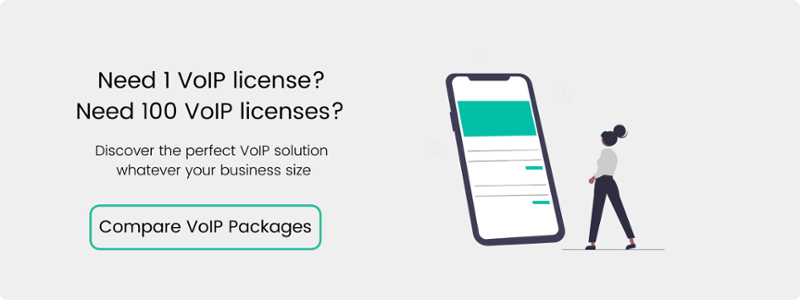VoIP Service Providers
The king is dead, long live the King. For longer than most of us can remember, analogue phone lines have kept us connected, but time catches up with all of us. BT will soon be consigning existing ISDN and PTSN networks to the annals of history and switching to a bright shiny new IP network. This new technology brings with it all sorts of benefits but finding best VOIP providers can be easier said than done.
Choosing VoIP service providers
The VoIP market has already grown massively over the past few years, but that’s nothing compared with what might be coming. By 2020, the global VoIP market could grow to more than $200bn according to a report from Future Market Insights.

VoIP service providers come in all shapes and sizes. Some are relatively small start-ups specialising in different types of business, others are large corporations. Prices will vary. Different providers will offer different features and inevitably some will be better than others. So how do you choose between them?
Defining your need
The first step is to define what you need it for. VoIP encompasses a wide category. It ranges from basic phone calls to a host of connected services. These include:
-
Enabling desktop calls: Not every provider allows you to enable desktop phones. You may need to purchase new VOIP enabled handsets to make your calls. These may be supplied as part of the package.
-
Call forwarding: There are many apps available which can forward calls through to your employees when they are on the move. When calls go through to the desktop they can be quickly routed to their mobile phone.
-
Door buzzer integration: You can integrate an analogue door phone so you can buzz people in straight from your phone.
-
Voicemail to email: This solution transcribes voicemail messages and sends them to you as emails.
-
Hold music: A must have if many of your callers are going to be waiting in a queue.
-
Bandwidth data: A managed VoIP provider can provide data on your bandwidth usage making it easier for you to optimise your service plans. It means you only pay for as much or as little bandwidth as you need.
-
Unified communications: Most providers, but not all, will allow you to unify all your communications into one system. This means that audio, video, email, conference calls, voicemail and other services can all be integrated within a single app. A service which does not offer this function means you’ll be running all these disparate systems separately, paying multiple bills, with no single location to track all your interactions.
Different businesses may also have different levels of need. A large corporation, for example, will typically require a bespoke service dedicated to providing a high level of functionality and connectivity. A smaller business, on the other hand, may need something much less expensive which simply helps them to transition from analogue to IP.

It’s all about understanding what you need from a VoIP provider. One of the key choices will be between cloud-based and on-premises VoIP. With on-premises, your business may have to buy all the equipment required, pay a regular fee for SIP trunking or PRI circuit and hire IT staff to repair and maintain all your infrastructure.
Using a cloud-based provider, on the other hand, means most of this is usually taken care of for you. There’s no need to buy expensive hardware or employ IT staff to look after it. You pay a fixed monthly fee depending on what you’re looking to get out of the service.
The downside, of course, is that you are not in control of the hardware. Key issues such as uptime and security will be dependant on that third party.
Much of this will come down to cost. In general, business VoIP is seen as a more cost-effective option but prices can vary significantly between providers. To make sure you’re getting full value for money you will need to define your requirements and shop around to find the best deal for you.
Contracts and support

Providers differ in the amount of support they offer and the flexibility of their contracts. As a business, you need to know you have support available as and when you need it. That may not always match with the opening times of their customer service centres.
Many providers will lock you into a service with a contract, but what happens if you’re not satisfied? Some providers, therefore, offer a 30 day ‘no satisfaction guarantee’. This is a trial period where you can see if you like the service or not. If there are problems, you’ll be able to cancel the contract with no penalties.
Security issues
Whenever data is moved online, security becomes an enormous and pressing issue. If you’re using a managed VoIP service, you need to understand where responsibility for data lies. Under the rules of GDPR, you will normally be responsible for all your data even if it is managed and processed by a third-party provider. If they have a problem which compromises your data, you will still be held responsible for the data breach.

It is vital, therefore, to ensure the firm can be trusted. Shop around and do some reach to see if it has experienced any problems in the past.
The service must provide end-to-end encryption and authentication within private VLANs to make life as difficult as possible for cyber criminals. You must secure all endpoints (devices connecting to the system such as tablets, phones or laptops) to ensure the integrity of the system. However, security can interfere with call quality. Firewalls, for example, may block some call signals because they can’t dynamically process the UDP ports for the calls to pass through it. You’re faced with a delicate balancing act. On the one hand, you want the system to be secure, but the more barriers you put up the less reliable call quality might be.
Quality and reliability

It’s no good having all sorts of features available if call quality is poor. This will normally come down to the internet connection. If you’re using a standalone VoIP provider, then, it will only be as good as the speed of connectivity you get from your broadband provider.
If your business handles large call volumes that is going to have a significant impact on your broadband usage. You may need to check with your internet provider to see if you need to upgrade to a faster package. This can take time and is the kind of additional expense many businesses will overlook.
VoIP can do great things for your business. It represents the future of communications and is perfect for the agile modern business world. This is, though, a massive market and sometimes you may feel dazzled by all the options available to you.
That’s where Amvia comes in. You can use our voip providers comparison software to find the best VoIP package to suit your business’s needs. We take the hard work out of finding the right provider, but we can also help with the setup and maintenance of your new VoIP package too.
Contact us today or search VoIP with our intuitive comparison tool.
.png?width=200&height=75&name=Amvia%20New%20Header%20Logo%20(11).png)



.png)